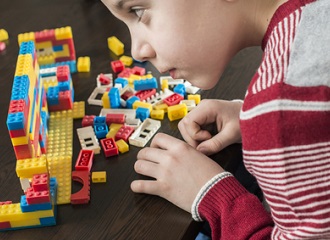
STEAM:
Science, Technology,
Engineering, Art
and Maths
Why you should consider signing your child up for a STEAM based after school activity
What is STEAM?
The fastest growing industries today require employees to have STEM skills (Science, Technology, Engineering and Maths). Being proficient in these subjects gives students a higher chance of success, no matter what career path they may choose. However, t's not enough to simply “know your stuff”. The best Scientists, Engineers and Programmers are those who are capable of being creative and inventive with their knowledge. Therefore, it is important that we also include the A for “Arts” and place a focus on design and creativity when we talk about STEM or STEAM.

When to Start?

STEAM subjects are widely introduced in secondary school but children are Scientists, Engineers and Artists when they are mere toddlers, intent on exploring and discovering the world around them. From a young age, children ask questions, seek answers and they naturally love to design, create and build, not to mention their love of technology! If you have a child who is so inclined, it is a great idea to allow them to join a club or class that focuses on one or all of the STEAM topics. Children can start from as young as age 6 or 7, depending on the activity that they are interested in.
Why Join a STEAM Class?
Joining a weekly class gives children opportunities to follow their passions, to continue asking “why?” and find answers, to create and build, to develop cool things with technology and to meet other children who share their interests. Unfortunately, there simply isn’t enough time for every school to cover every subject at primary level and often schools don’t have the resources to provide the required scientific and technological equipment and teacher training.

Which Type of STEAM Class?

There are a growing number of providers of STEAM activities for children at primary level and all offer a different learning experience for your child. How do you choose? This of course, depends on your child. Do they have a specific interest within STEAM? Or would they be excited to explore the whole variety of topics that STEAM can offer?
Science:
When choosing a science class, look for something that provides that little bit extra so that your child gets an opportunity to try experiments that may not be so feasible at home. Science is a very broad term so some science classes focus on a single area of science. For example, if your child joins a Lego group the science of interest will mostly be physics. If your child joins a robotics class, the sciences explored will be mainly electronics and computer science. Other classes focus on the core areas of science and carry out various experiments based on chemistry, biology and physics.

Technology

Most children are interested in technology. However, this interest often doesn’t veer far from playing video games and watching YouTube videos! If you have a child who loves to be in front of a screen, then encouraging other ways to enjoy technology is a good idea. It is very beneficial for children to learn to be creative with technology rather than simply consume its content. Perhaps a class that teaches coding, stop motion animation, app development, music technology, electronics or robotics would suit?
Engineering
If you ask a child what an engineer does, most will tell you that engineers make things or fix things! Engineers are designers first and foremost and there are of course, many types of engineer. If your child loves to design and build, then look for a class that allows them to come up with ideas and then create them. There are many classes that use Lego as a material and this can be a fun way for kids to get together with other Lego enthusiasts, work in teams and share ideas.

Art

In the context of STEAM, art is all about being creative, asking questions and coming up with ideas. A STEAM class will teach your child new skills and new ways of doing things. Children at primary level will have lots of creative ideas and can then use these new skills to allow them to being their ideas to fruition. In fact, research shows that children come up with mobile app ideas which are better than the ideas of adults!
Maths
Maths will often be incorporated in a STEAM class without children even being aware of it. Measuring, weighing, logic, calculating and many other practical maths skills will be used when doing science experiments, engineering challenges and technology projects.

STEAM

And if your child wants to learn more about all of the above? Look for a class that offers everything; science experiments, engineering projects, art and design activities and creative technology projects. This is a great way for children to be exposed to STEAM, to become comfortable with these subjects at a young age and to have fun with hands-on challenges and projects. It should also allow them to feel more confident about these subjects when they get to secondary school.
Most Importantly...
Above all, make sure that there is a focus on “doing”. Choose a class that allows your child to get stuck in and do the activities themselves. There will often be teamwork involved, with children working in pairs or groups. This allows kids to develop communication skills, take turns, make new friends, learn to compromise and share ideas. Make sure that the activities are designed to be fun and engaging. No matter what type of afterschool activity your child joins, they should leave the class feeling enthusiastic about what they have learned!

Written by: Helena Sheehan-Lyne, Director, Designer Minds. Designer Minds offers multi-disciplinary STEAM parties, clubs, camps and workshops for primary children.
Check out our other articles to help you choose an after-school activity for your child




